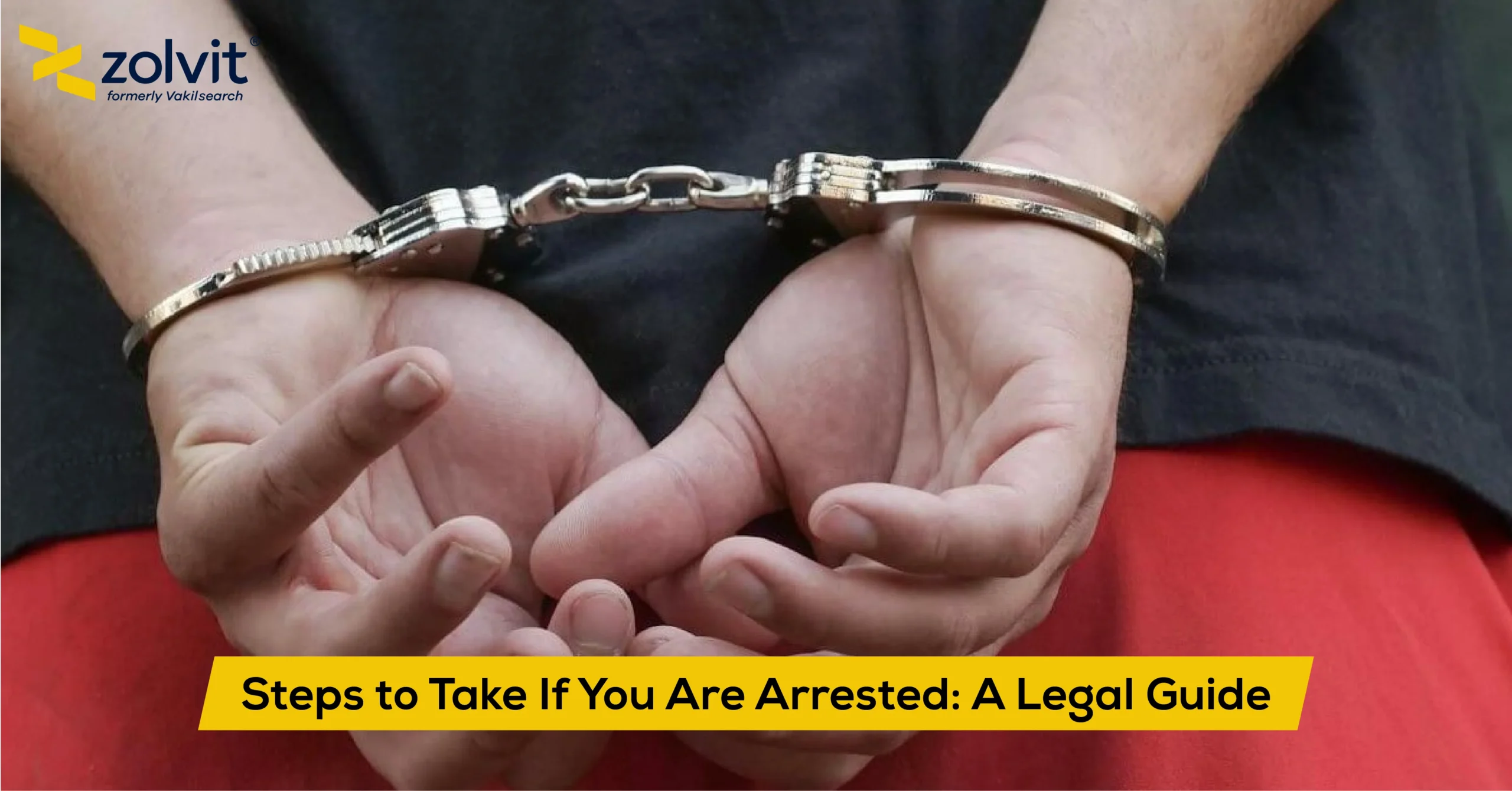Being arrested can be a frightening and overwhelming experience. Awareness of one’s rights, the procedure for arrest, and the legal process can help one get out of it fairly effectively. The Code of Criminal Procedure governs the arrest procedures in India. The law describes the rights of persons arrested and detained under its provisions. In this blog, we will detail the actions to be taken if you get arrested, the Indian legal rights you can exercise, and the need to seek a legal advisor.
Immediate Steps to Take Upon Arrest
When arrested, it is crucial to not restrain. Here are some immediate steps to follow:
Stay Calm
When under arrest, staying calm can greatly affect the aftermath. You appear non-threatening when you remain calm. Moreover, your remaining calm can calm the situation down.
Do not resist arrest
Resisting willful arrest will be charged with more offences. Cooperate with law enforcement officers to protect your rights and avoid more complicated situations.
Exercise Your Right to Remain Silent
Under Indian law, you have the right to remain silent and avoid self-incrimination. That is to say, you do not have to respond to the questions of law enforcing officers under any circumstances. You should seek to exercise your right to silence so that nothing will come out from your mouth to be used against you in court.
Request for Attaining a Lawyer
It is very important to request a lawyer immediately after arrest. These defendants have the right to legal representation guiding their case, guarding their rights, and understanding the law process. You only need to say, ‘I want to talk to a lawyer,’ in order to appeal your right to counsel.
Understanding Your Legal Rights
When one is detained, then they must understand which legal rights can protect them to ensure a sound judicial process.
Right to Know of Accusation
You have the right to know the accusation against you. You should know what you are being accused of in a language you understand.
Right to be Taken Before a Magistrate
You are entitled to being taken before a magistrate within 24 hours of arrest. Your detention must be lawful, and therefore, unlawful detention is avoided.
Right to Remain Silent
You have the right to remain silent to avoid self-incrimination. This means that you don’t have to answer any question that could incriminate you.
Bail and Bail Procedures
Bail is that system by which an accused person is given an opportunity to be released from custody in lieu of their assurance to appear before the court when required. It is calculated by the court based on the crime itself and the possibility of them running away from jurisdiction.
Legal Procedures After Arrest
The following legal procedures may be conducted after arrest.
Police Interrogation and Investigation
Know Your Right About Police Interrogation: You have a right to remain silent and the right to counsel during police interrogation.
What to expect while under interrogation: Police may interrogate you on the supposed crime committed against you and your association with it. It is recommended that you use your right to remain silent and consult a lawyer.
Law on search and seizure
When and how do the police carry out a search: Police are allowed to conduct a search in some circumstances that include if they have a warrant or some reasons termed as probable cause.
Rights during detention: You are entitled to know the reason for the detention and to object if it is supposedly illegal.
Detained Person
Common rights: You are entitled to representation, protection from ill-treatment, and medical care if needed
Special Laws governing Women: There are special provisions under law that guard women against harassment and torture during arrest or detention.
Legal Assistance and Representation
It is quite essential to have representation in your criminal charges.
Significance of Representation
A criminal lawyer will protect your rights and guide you through the legal process while developing an outstanding defence strategy against you. The lawyer will negotiate with prosecutors and represent you in court.
How to Choose a Criminal Lawyer
This means you should hire a lawyer who is not only versed in criminal law, but also who has a good reputation and specialisation. It also means you need to be comfortable and have confidence in your lawyer’s presentation of your interests.
Recording the Arrest
Recording all aspects of arrest may sometimes prove to be very fruitful towards the development of your case. Be able to identify time, location of your arrest, and names of officers involved in the arrest as well as statements they might make.
Cooperation with Legal Authorities
While exercising rights, one has to also cooperate with law enforcement when necessary. This is defined by taking particular actions that are legal, relating to giving information, participating in investigations, going to court when summoned, and so on.
Post-Release Legal Steps
The moment one is released from custody, there are post-release legal procedures that need to be known in order to be followed.
Step 1: Arrest Record Management
An arrest record is an important document, and it keeps getting copied. Acquisition of such arrest records should be done; these include the arrest report, charge, and any court order.
Step 2: Arrest Record Expunge
In some cases, an arrest record can be expunged or sealed, meaning the information is removed from public access.
Conclusion
Being arrested is a terrible experience, but knowledge of your legal rights and procedures followed in criminal justice will help you navigate this trying time effectively. You must therefore stay as calm as possible, assert your rights, and consult with an attorney for defence purposes. You must document the arrest, comply with any legal proceedings, and accurately record your case. So, following all these steps will increase your chances of a positive outcome and minimal damage to the arrested person’s life. Connect with senior lawyers from zolvit and get immediate legal support in just a few steps.
